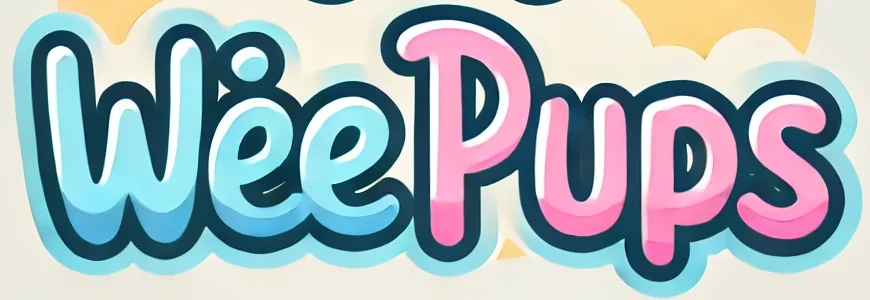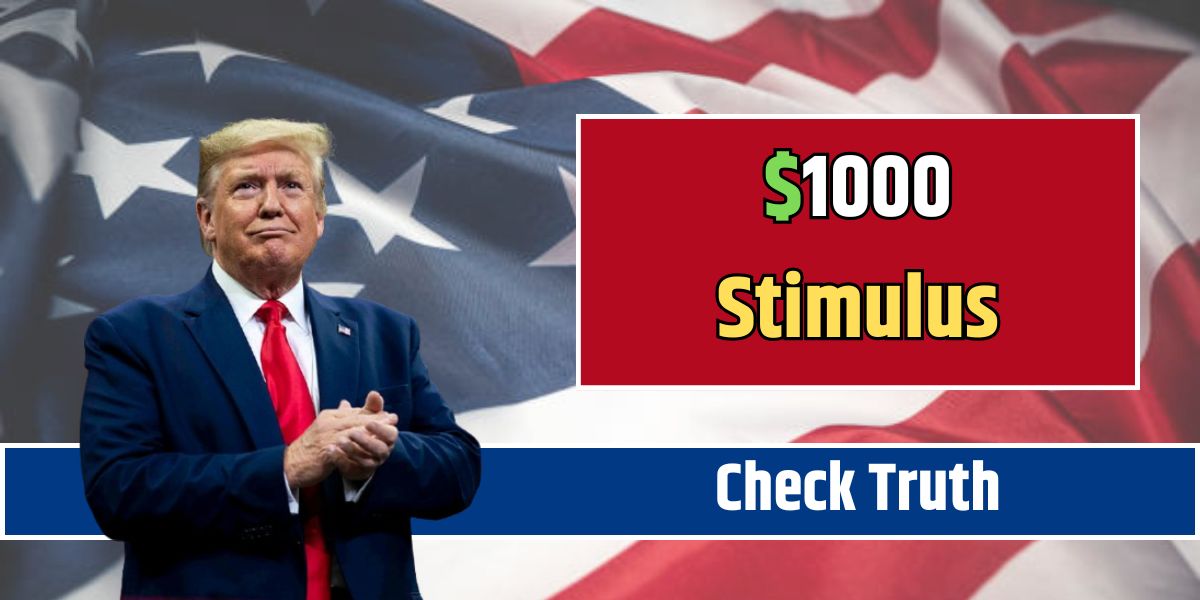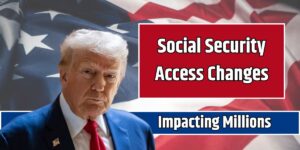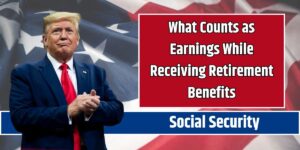In recent weeks, social media has been abuzz with claims about a $1,000 stimulus check supposedly being distributed to American citizens in November and December 2024. This misinformation, primarily fueled by a viral Facebook video, suggests that the payment is aimed at alleviating financial pressures due to rising national debt and credit card expenses. However, a closer examination of official sources and the video itself reveals that these claims are entirely false.
Is the $1,000 Stimulus Check Real?

No, the claim about a new $1,000 stimulus check is not true. Despite the widespread excitement and confusion it has caused, no such payment has been approved or announced by the federal government.
Why the Claim Is False
1. No Official Announcement
- The Internal Revenue Service (IRS) and the U.S. Department of Treasury, the agencies responsible for managing stimulus payments, have not issued any statements about a $1,000 stimulus check.
- Typically, any new financial relief program would involve extensive media coverage, government press releases, and clear eligibility guidelines, none of which exist for this alleged stimulus payment.
2. Manipulated Content
- The viral Facebook video misuses and edits an old news clip featuring CBS anchor Norah O’Donnell. The original broadcast discussed the issue of rising credit card debt but made no mention of a stimulus check.
- Content verification platforms like TrueMedia.org confirm that the footage dates back to June 2023, well before the recent 2024 election cycle. The altered video has been spliced and repackaged to create a misleading narrative.
3. Denial from the IRS
- The IRS has explicitly denied the existence of any new stimulus check, cautioning the public about falling victim to misinformation. An IRS spokesperson reiterated that all official Economic Impact Payments (stimulus checks) from prior programs have already been disbursed.
How to Spot Financial Misinformation
Social media platforms often serve as breeding grounds for misinformation, particularly during times of economic uncertainty. To avoid falling for such claims, follow these practical tips:
1. Verify Through Trusted Sources
- Check official government websites, such as irs.gov or treasury.gov, for any updates on stimulus programs.
- Major news outlets like CNN, The New York Times, or Reuters will report credible developments if a new stimulus check is approved.
2. Scrutinize the Content
- Be wary of videos or posts that use sensational headlines or doctored footage. False claims often rely on:
- Outdated news clips.
- Statements taken out of context.
- Fake quotes attributed to government officials.
3. Look for Media Coverage
- Genuine stimulus programs, like those during the COVID-19 pandemic, receive widespread media attention. If only obscure or unofficial sources discuss a supposed program, it’s likely a hoax.
4. Consult Financial Experts
- If in doubt, speak with a financial advisor, tax preparer, or accountant who can help verify claims and provide accurate information.
Why Do These Claims Spread So Quickly?
1. Financial Anxiety
Many Americans face financial pressures, such as rising costs of living and credit card debt, making the idea of a stimulus check appealing.
2. Familiarity with Previous Stimulus Programs
The COVID-19 stimulus checks provided significant relief, creating an expectation that similar measures might return during economic challenges.
3. Viral Social Media Algorithms
Misinformation often spreads rapidly due to algorithms prioritizing engaging content, regardless of its accuracy. Clickbait headlines and emotionally charged posts tend to gain the most traction.
Official Guidance and Conclusion
The claim of a new $1,000 stimulus check being distributed in November or December 2024 is entirely false. This misinformation stems from a manipulated video and has been debunked by government agencies and fact-checking organizations. No new stimulus payments have been announced, and no credible source supports this claim.
To stay informed and avoid confusion:
- Always verify financial news through reliable sources.
- Be skeptical of viral social media posts, especially those without corroboration from trusted outlets.
- Refer to official government websites for accurate updates on federal benefits.
By relying on credible information, individuals can avoid unnecessary stress and make informed financial decisions.
FAQs
Is the $1,000 stimulus check real?
No, there is no $1,000 stimulus check being distributed. The claim is false and has been debunked by official sources.
Where did the rumor about this stimulus check come from?
The misinformation originated from a manipulated Facebook video that falsely presented old news footage as evidence of a new stimulus program.
How can I verify if a stimulus check is real?
Check official announcements on government websites like irs.gov or treasury.gov and look for coverage from credible news organizations.
Why do these rumors spread so easily?
Financial anxiety, familiarity with past stimulus payments, and social media algorithms that amplify sensational content contribute to the rapid spread of such misinformation.
What should I do if I encounter a false claim?
Avoid sharing it, report the post to the platform, and encourage others to verify the information through trusted sources.




